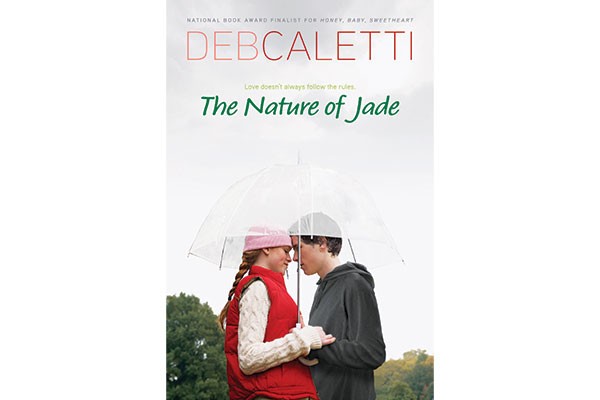Although technically classified as a YA novel, The Nature of Jade is one of those rare books which holds something inspiring and beautiful for readers of all ages. This book has been one of my firm favourites for years now, because of its captivating and accessible writing style, unexpected and bittersweet plot, relatable characters and an overall fantastic message for readers.
The Nature of Jade follows teenager Jade De Luna as she navigates her final year at high school whilst managing her panic disorder and anxiety. She finds great calmness in watching the elephants at the nearby zoo, and keeps a live elephant webcam open on her computer screen at night. This is how she first sees Sebastian, a boy in a red jacket carrying a baby, and is also where the story really begins. I won't give away too much plot-wise, because the graceful twists and turns of this novel form the most serendipitous, and at times tragic, surprises.
Deb Caletti perfectly captures the tentative end-of-high-school stage of life where years of habit and routine begin to fall away in the face of the looming unknown. Jade must negotiate the increasingly rocky relationships between both friends and family, as the people around her begin to grow apart in unexpected ways. In addition to this, Caletti navigates the rocky terrain of anxiety and panic disorders with an insightful, adept and subtle hand. What is key about this text is that Jade's conditions are not romanticised and certainly not glamourised— her experiences at this pivotal point in life poignantly highlight the realities of these mental illnesses.
The second major issue which this novel brings to light is that of the treatment of elephants, both in zoo environments and in the wild. More than just a romantic drama, this book contains fascinating insights into the behaviour of elephants and their social methods of interaction. The cruelty still suffered by elephants in countries where they are exploited for tourism and ivory is highlighted by Caletti, but perhaps more intricately so is the long-lasting effects of this cruelty, even when the elephants are removed from the situations. That these animals are highly intelligent and compassionate beings with strong individual personalities is a key aspect of the novel which imbues it with a powerful humanity.
For raising awareness of these issues and presenting them in such an understandable light, I applaud Caletti. This is the type of novel I wish I had read sooner, only to have been able to read it more times over and over again.






